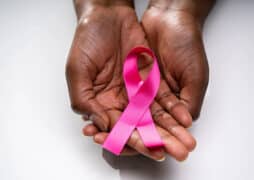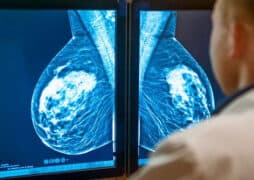The Susan G. Komen voucher pilot program closed in the limited communities it was available in November 2023. Komen navigators continue to provide educational, practical, and emotional support to individuals seeking breast cancer screening and diagnostic services. Contact Komen’s free Helpline at 1-877-GO-KOMEN to speak to a trained navigator today.
Susan G. Komen®, the world’s leading breast cancer organization, today applauded the bipartisan, bicameral introduction of the Screening for Communities to Receive Early and Equitable Needed Services (SCREENS) for Cancer Act, led by Sens. Tammy Baldwin (D-WI) and Susan Collins (R-ME) and Reps. Joseph Morelle (D-NY-25), Brian Fitzpatrick (R-PA-1) and Nanette Barragán (D-CA-44).
The legislation reauthorizes a critical program – the National Breast and Cervical Cancer Early Detection Program (NBCCEDP) – that provides access to breast cancer screening and diagnostic services for low-income, uninsured or underinsured people in all 50 states, the District of Columbia, six territories and 13 tribes or tribal organizations.
Since its founding in 1991, NBCCEDP has served more than 6 million people, detecting nearly 75,000 invasive breast cancers and more than 5,000 invasive cervical cancers. The program, which is a partnership between the Centers for Disease Control and Prevention (CDC) and state health departments, also provides public education, outreach, patient navigation and care coordination to increase breast and cervical cancer screening rates and reach underserved, vulnerable populations.
Access to screening is even more important today as so many women delayed or missed annual screenings due to the COVID-19 pandemic. Research shows that the COVID-19 pandemic is associated with a decline of more than 3.9 million breast cancer screenings in 2020 as compared to 2019. In 2022 alone, an estimated 290,560 people in the United States will be diagnosed with breast cancer and nearly 44,000 will die from the disease.
The SCREENS for Cancer Act, once passed, will preserve access to vital public health infrastructure that has a proven track record of improving cancer screening rates in vulnerable populations. The legislation provides greater flexibility to NBCCEDP grantees, allowing for more emphasis on implementing innovative, evidence-based interventions and aggressive outreach to underserved communities through media, peer educators and patient navigators.
“Screening is a key step in routine breast care but so many people are currently unable to access it – the SCREENS for Cancer Act can change that,” said Molly Guthrie, VP of Policy & Advocacy at Susan G. Komen. “We have to make timely access to high-quality screening and diagnosis available to all, especially those in under-resourced communities where disparities in outcomes are highest, so that cancers can be caught early when there are more treatment options and prognosis is better.”



